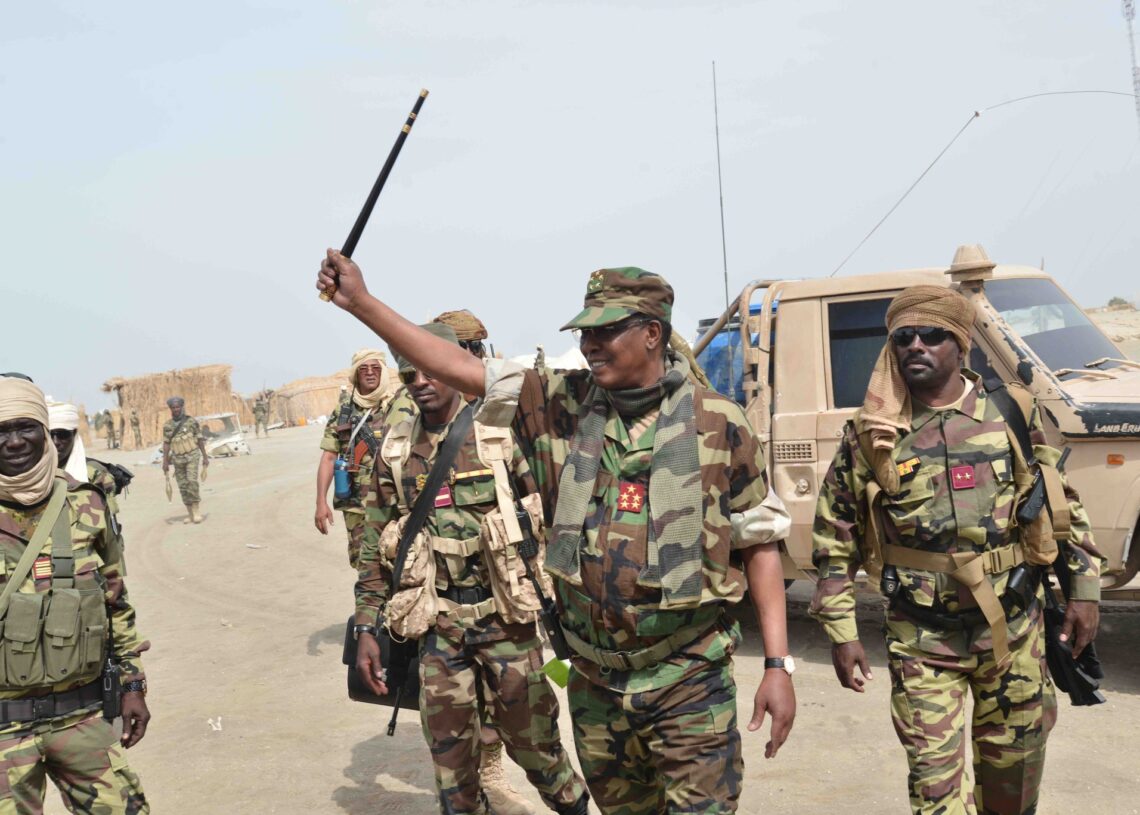It has been a bad week for West Africa with the third coup in five months. It started in Chad, then Mali and now Guinea. Maybe the most ominous sign of the week is the announcement by Gambian President Adama Barrow that he has formed an alliance with the expelled tyrant, Yahya Jammeh, to contest the December 4th, 2021 elections in the Gambia. Jammeh had terrorised the people for his 22-years in power following the 1994 coup d’état, killing human rights defenders, dissidents and protesters. He lost the 2016 elections and refused to hand-over power until he was forcibly removed from power by neighbours. Barrow, a compromised candidate of the democratic opposition broke his solemn promise to the people to resign after three years and pass on power. Today, knowing clearly, he has lost the support of the people, he is resurrecting the sanguinary dictator to help him stay in power, clearly, as the new tyrant. It is the time of the return of the tyrants.
On 2nd December 1990, Idriss Deby had shot his way into Chad’s Presidential Palace after an epic battle with his former boss and mentor turned enemy, Hisene Habre. For his 30 years in power, it had been a series of rebellions, bloody conflicts, intrigues and coup attempts. Alongside the instability, elections have been holding and he was killed the day after he had been declared winner of the recently concluded election and was to be sworn in for his sixth term. Alas, the self-declared Field Marshall was no more, so his 37-year old son, General Mehemet Idriss Deby, organised a coup the same day, 21st April 2021 and suspended the Constitution, dissolved Parliament and set up a ruling military council, for which, he is the supreme commander.
The Malian tragedy has been exacerbated by the 2021 coup d’état, which began on the night of 24 May 2021, when the army led by Vice President Assimi Goita arrested President Bah N’daw and Prime Minister Modar Ouane. Assimi Goita, the head of the junta that led the 2020 Malian coup d’état, announced that N’daw and Ouane were stripped of their powers and that new elections would be held in 2022. It is the country’s third coup d’état in ten years. Nine months prior to the 2021 coup, in August 2020, President Ibrahim Boubacar Keïta was removed from power by a military alliance. This followed months of unrest in Mali following irregularities in the March and April parliamentary elections and outrage against the kidnapping of opposition leader Soumaila Cissé.
In Guinea, the coup against Alpha Conde was organised by Lieutenant-Colonel Mamady Doumbouya, his kinsman who he had appointed head of the well-resourced and armed elite brigade to ensure that no coup against him succeeds. The 83-year old president had been in the democratic opposition for decades until he got to power at 72. After ten years and two terms, the expectation was that he would take a well-deserved rest. Sadly, he had no intention of leaving power while alive and was ready to use underhand tactics to smash the opposition while abusing his incumbency powers to rig the elections. He worked hard on it. I remember that in August 2019, he spent his Eid vacation with President Buhari in his home town in Daura seeking Nigeria’s support. The advice he received everywhere was: “Old man; go to your village and rest”, he ignored all advice leaving the coup option as the sole viable way to unseat his dictatorship. The story of Guinea is yet another one in which rich natural resources attract imperial countries to support dictators to engage in bad governance of their countries while they reap the profits. Guinea is a key exporter of the metal required to make Aluminum – bauxite – as well as having plentiful iron ore reserves. It also has mineral resources, including cement, salt, graphite, limestone, manganese, nickel and uranium. China is the current beneficiary of the country’s resources and in a surprise move, came out and condemned the coup in spite of its habitual principle of ‘non-interference’ in relation to African states. It is interesting that Col Doumbouya was trained by Israel and served in the French Foreign Legion; while his wife has continued to serve in French law enforcement capacities.
Following the Mali coup, veteran African governance analyst, Eloho Otobo had lamented the lost expectations were that military coups would be deterred by Article 30 of the African Union Constitutive Act on the unacceptability of unconstitutional changes of government. He reminds us that although coups have become less frequent in Africa: “There have been 18 coups in 13 African countries between 2002 and 2020. This translates to an average of one coup per year since the Constitutive Act was adopted. These occurred in Burkina Faso (2015); the Central African Republic (2003); Egypt (2013); Guinea (2008); Guinea-Bissau (2003, 2004, 2012); Madagascar (2002, 2009); Mali (2012, 2020); Mauritania (2005, 2008); Niger (2010); São Tomé and Príncipe (2003); Sudan (2019), Togo (2005) and Zimbabwe (2017).” That spectre that started devouring Africa with the first coup in Togo against Sylvanus Olympio in 1963 is still haunting the continent.
The tragedy is that Africa learnt an important lesson from the decades of military rule and authoritarian single-party regimes that started transiting into multi-party democracies in 1990. That liberal multi-party democracy is part of a set of variables that could be a veritable tool for conflict prevention and peacebuilding in addition to its use value in the form of the freedoms, rights and citizenship it provides. It is for this reason that the African Union and its regional institutions placed emphasis on the normative framework for enhancing and protecting democracy. The democratic transition of 1990-1994 was therefore marked by a pact or social contract between the State and citizens to protect the said normative framework. Elements of the pact include zero tolerance for unconstitutional change of government; abolition of tenure elongation beyond two terms in office for executives; maintaining the multi-party democracy system and protecting the opposition; free, fair and credible elections; and enhancing the power of parliaments and the judiciary – separation of powers.
Over the past decade, commitment to these principles and above all practices have waned as a result of the lack of respect for them by so many African Presidents. Our problem is sabotage by many African leaders with responsibility for implementing them. The result is that elections and democracy are being emptied of their essence and African citizens are beginning to question the meaning of elections without choice and democracy without dividends. It is in this context that conflicts, including banditry, terrorism and violent extremism have grown and spread in the continent. The consequence is that Africa is currently facing intense conflicts due to economic and social grievances on the one hand and violent religious extremism on the other. There is a breakdown of the democratic and even the political order in some countries in the region and military interventions have made a return. Improving governance to create conditions for peace has therefore become an urgent need.
The military of yesteryears are coming back in full force. They seek for signs from the people – dissatisfaction against the bad governance of incumbent governments and popular protest, they ride on that to power with promises of a quick return to a new regime of proper democratic governance and promptly institute another round of bad governance. The African people must crack this old, and now “new” code of recycling bad governance.

 Join Daily Trust WhatsApp Community For Quick Access To News and Happenings Around You.
Join Daily Trust WhatsApp Community For Quick Access To News and Happenings Around You.


